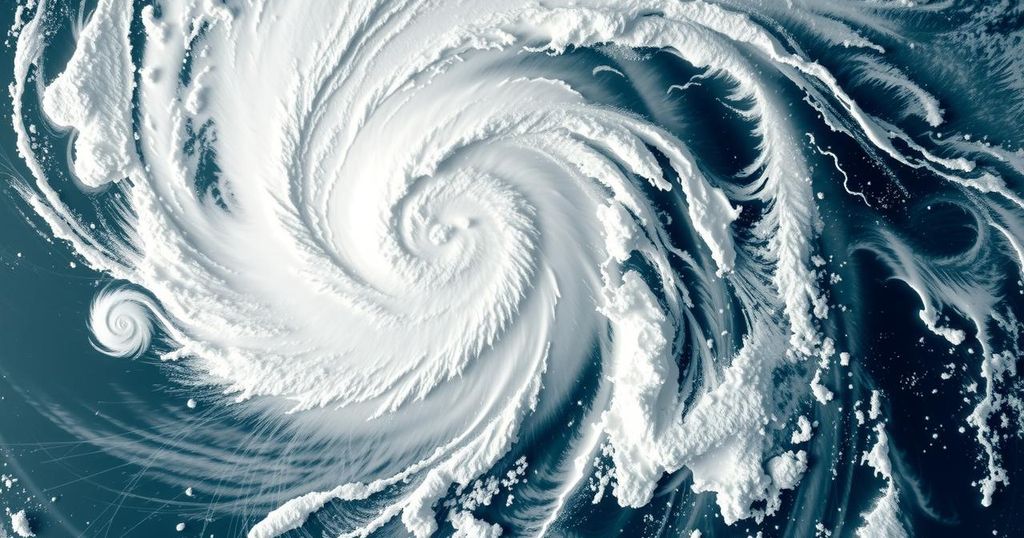Weather
World news
AFRICA, CHIDO, CLIMATE, EUROPE, FRENCH INDIAN OCEAN, INDIAN OCEAN, MALAWI, MANICA, MAYOTTE, MOZAMBIQUE, MOZAMBIQUE CHANNEL, NATURAL DISASTER, NATURAL DISASTERS, PAUL SAMASUMO, PEMBA, POWER OUTAGES, RAIN, RELIEFWEB, SADC, SOFALA, SOUTHERN AFRICA, SOUTHERN AFRICAN DEVELOPMENT COMMUNITY, TETE, TETE PROVINCE, VATICAN CITY, VATICAN NEWS, ZIMBABWE
Stella Nguyen
0 Comments
Tropical Cyclone Chido Ravages Southern Africa, Causing Extensive Damage
Tropical Cyclone Chido struck Mozambique on December 15, causing wind gusts up to 80 km/h and over 250 mm of rain. The cyclone has already claimed over 5,800 homes and disrupted communication systems. After devastating Mayotte, it now threatens Malawi before heading toward Zimbabwe. Residents are urged to stay updated through meteorological services.
Tropical Cyclone Chido made landfall in Mozambique on December 15, unleashing powerful winds reaching up to 80 km/h and intense rainfall exceeding 250 mm within a 24-hour period. The Southern African Development Community (SADC) reported extensive damage, noting the destruction of over 5,800 homes and significant impacts on educational facilities and infrastructure, affecting approximately 2,500 families. As assessments of the damage continue, local residents are facing challenges related to communication and power outages, with many conserving battery life on their mobile devices for urgent communications.
Before impacting Mozambique, Cyclone Chido struck the French Indian Ocean territory of Mayotte as a Category 4 cyclone, generating winds exceeding 220 km/h that obliterated entire neighborhoods. Following its arrival in Mozambique, Chido is predicted to migrate inland towards Malawi, where it is currently classified as a moderate tropical storm with expected rainfall between 100-150 mm. The cyclone is projected to re-enter Mozambique in Tete Province and continue its trajectory toward Zimbabwe, set to dissipate by December 17.
Communities in Mozambique and Malawi are being urged to monitor weather updates closely through their respective national meteorological services to prepare for potential further impacts from Cyclone Chido.
The Atlantic Ocean and surrounding regions are often subject to the formation of cyclones, particularly during the tropical storm season. Tropical Cyclone Chido exemplifies this phenomenon, demonstrating the destructive potential such systems can have on populated areas. Cyclones cause significant economic and infrastructural damage, often leading to humanitarian crises following their passage. The affected regions, particularly Mozambique and Malawi, are frequently vulnerable to severe weather events, necessitating ongoing disaster preparedness and effective response strategies.
In summary, Tropical Cyclone Chido has inflicted severe destruction in Mozambique and previously in Mayotte, displacing thousands and causing significant infrastructural damage. As it continues its path toward Malawi and potentially into Zimbabwe, it is imperative that residents remain vigilant and informed through official weather updates. The situation underscores the persistent threat posed by tropical cyclones to Southern African nations, highlighting the need for comprehensive disaster management strategies.
Original Source: www.vaticannews.va




Post Comment